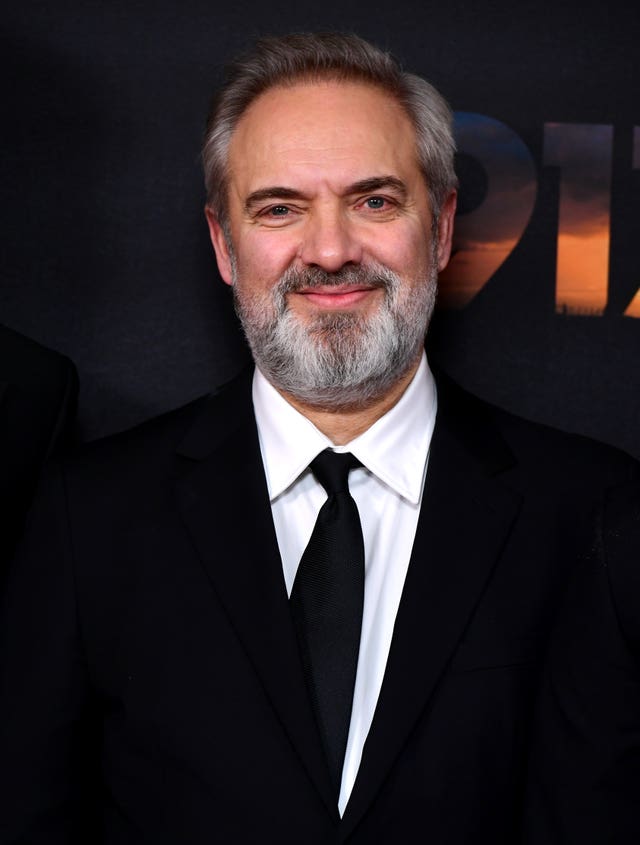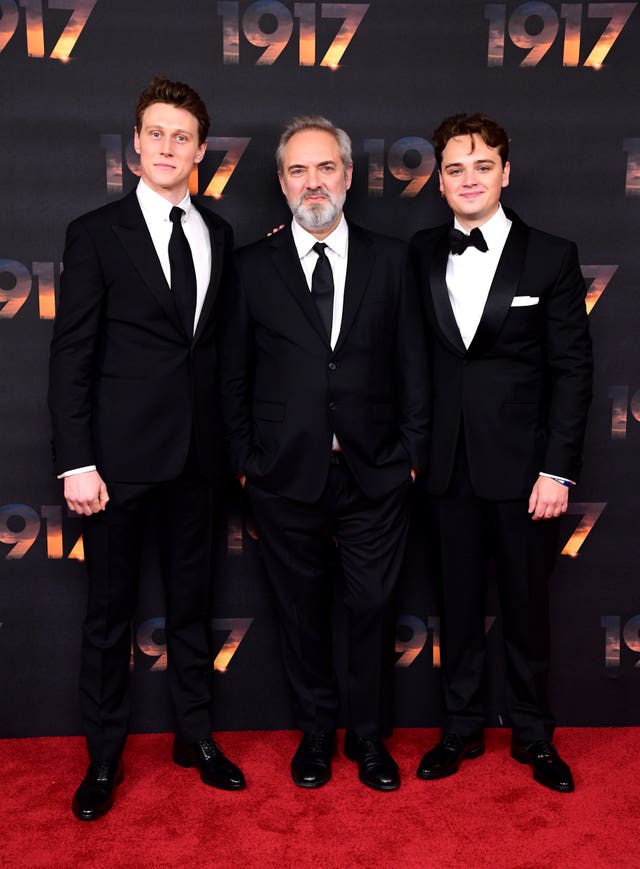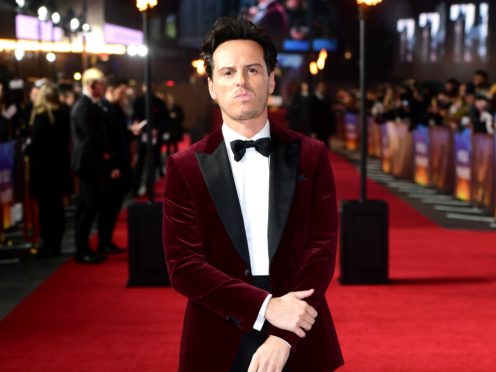Andrew Scott has revealed a fiddly cigarette lighter ruined his scene in Sam Mendes’s new war film 1917.
The Fleabag star makes a brief appearance in the movie, filmed as if in one long take, and admitted he was responsible for versions of his scene being unusable.
He told a London press conference for the film: “You have to work alongside the camera team and the extras but the great challenge of it is you don’t want to mess it up, because you’re only in it for five minutes, you don’t want to be that guy.
“The great challenge is if you make a mistake in minute four or five you have to do it all again from the beginning.”
Asked who made the most mistakes and ruined a take, director Mendes joked: “Andrew, in his only scene, made more mistakes than anyone else.”
Scott replied: “Never smoke, never use a cigarette lighter.”
Mendes continued: “You have seven minutes of magic and then if someone trips or a lighter doesn’t work you have to start again and none of it is usable.

“We did see-saw between thinking ‘Why are we doing this to ourselves?’ and ‘This is the only way to work’.”
However actor George MacKay, who has a long-running scene towards the end of the film, said sometimes mistakes improved the finished product.
He said: “Sometimes you got mistakes that are beautiful. There is a big run towards the end, I’m going one way and there are a lot of men going horizontal and I just got clattered.

“I didn’t intend to get hit in the way I did but it ended up being real and made it into the film.”
The film, which follows two young soldiers as they are sent to deliver a message to another company that could save hundreds of lives, was inspired by stories told to Mendes by his grandfather.
He said: “I had this idea of the story my grandfather told me of carrying a message but the problem of the First World War in general is it’s a war of paralysis.
“It was only when I started researching it and came here and found this time in 1917 when the Germans retreated, and the land they were fighting over was abandoned, there seemed to be a story possible to tell of this epic journey.
“One of the reasons the First World War is not as represented in movies as the Second World War was the nature of the war was quite static.”
Discussing his decision not to end the film with the end of the war, Mendes said: “I was very conscious not to make it a history lesson.
“We know how the war ended but I felt it happened to be two British soldiers but could have easily been two German soldiers.
“It was about the experience of war and not the historical moment. Through the micro, through individuals, you only begin to understand the macro, the detail of one man’s experience, you see the panorama of death and destruction.
“Sometimes I feel like because you could go anywhere in cinema, your eyes get bigger than your stomach, to express the vastness of war, but there is always a human being and that was very deliberate and I’m pleased it’s making a connection.”
Asked how many cuts there are in the film, cinematographer Roger Deakins said: “That is a secret but you can probably work it out.
“We shot somewhere around 65 days and the longest take was probably nine minutes, so do the maths.”
He added: “The major difficulty was getting across the terrain and doing some of the really intense, sensitive scenes and making it all feel like a piece.
“You’re using a lot of different techniques, the trick was trying to make it feel like one camera all the time – that was the biggest challenge, that and the weather.”
1917 is released in UK cinemas on January 10 2020.
